Arbat blessed to hell
As part of the Russian troops in Ukraine, there will be a PMK, which will fight under the Armenian flag and with the blessing of the Armenian Apostolic Church. The head of the Russian and Novo-Nakhichevan Diocese of the Armenian Apostolic Church, Archbishop Ezras (Nersisyan) blessed the Arbat battalion, which, they claim, consists of ethnic Armenians, has a patch in the form of the Armenian flag, and operates within the Wild Donbas Division.
Only a year ago, the Prime Minister of Armenia, Nikol Pashinyan, fought off suspicions and accusations that Armenia allegedly “supplies militants to Ukraine.” Or at least provides them with a “forward airfield”. The Armenian prime minister rejected these suspicions and tried to convince the world that Armenia, although it has strong and diverse political ties with Russia, does not support it in the war against Ukraine.
The creation of Arbat has quite clear goals in Yerevan. The word “Artsakh” keeps coming up in conversations of the battalion’s founders. As the “founders” of the new so-called Kremlin PMC claim, Arbat is partially made up of regular Armenian military personnel who left Karabakh. And they do not keep secret their trauma about lost Artsakh.
In this, the Armenian “patriots” are fully supported by the Armenian Apostolic Church: in the spring, Catholicos of All Armenians Garegin II demanded the resignation of the Prime Minister of Armenia, Nikol Pashinyan. Most of all, the head of the church blamed the premier on the lost Artsakh.
In this context, the vague words of the commander of the new PMK and so-called hero of the special military operation Hayk Gasparian that their “goal is to protect the Motherland” sound quite ambiguous. What exactly does a native of Nagorno-Karabakh with an Armenian flag on his patch mean by Motherland? Should it be understood that Ukraine is only a stage, a shooting? Does the real goal lie in another geographical point?
Another interesting nuance: the so-called Armenian battalion will be part of the Wild Donbas Division, which is managed by the Abkhazian Ahra Avidzba. In his comment, he seemed to remind, among other things, that the Armenians somehow already helped the Abkhazians during the Georgian-Abkhazian war of 1993.
This “signal” immediately echoed in the hearts and mass media of Georgians. They immediately remembered how the head of the Armenian Church blessed the fighters of the battalion named after Baghramyan for the war against Georgia and the killing of Georgians.
In general, it is currently difficult to say exactly how the Armenian battalion will strengthen (and whether it ever will strengthen) the Russian front in Ukraine. But one thing can be said for sure: the militant groups that are formed and fight under the Armenian flag but are in no way subordinate to the Armenian authorities, are an element of the policy of destabilization in the Caucasus. Russia binds Armenia by blood and cuts off all the roads to the West that Pashinyan’s government timidly tried to pave.
A special and key role in this is played by the Armenian Apostolic Church, which highly values and nurtures ties with the Kremlin leadership and is ready to play along with it - both in Moscow and Yerevan, and also, as we can see, on the Ukrainian front. Political, financial, and even purely family interests contribute to the strength of these ties: the "hero of the day" is Bishop Ezras (Nersisyan) of Nakhichevan, the brother of Catholicos of All Armenians Garegin II (Nersisyan). In addition, I can remind you that in the fall of 2022 at the peak of the Russian-Ukrainian war Catholicos Garegin II received the Order of Honor so to say for his contribution to the development of Russian-Armenian relations from the hands of Russian President Putin. And also – let us recall it once again – his recent “fatherly” advice to Prime Minister Pashinyan to resign for the so-called surrender of Artsakh. So, the Armenian Apostolic Church is helping Putin get rid of an unwanted politician.
However, the involvement of the Armenian Apostolic Church does not end with getting even with the “unsatisfied” and destabilizing the Caucasus. It also played a dirty trick on Ukraine. It’s not just that the enemy will have another battalion at the front as there were more words said about Arbat than there were people on the photo who received the church’s blessing for killing Ukrainians. The fact is that the participation of the Armenian Apostolic Church puts both the Armenians of Ukraine and the Ukrainian authorities in a false position.
One can’t envy the Armenians of Ukraine. The muzzles of their co-religionists are now aimed at them, and they can be killed with the blessing of their own church. But at the same time, they are a potential object of mistrust and hatred on the part of their compatriots – Ukrainians.
In the end, an uncomfortable question arises: after all this, should the Armenian Church in Ukraine be classified as a “church with its center in a country that carries out military aggression against Ukraine”? Let me remind you that in this regard there is a decision of the National Security and Defence Council signed by the President of Ukraine Volodymyr Zelenskyi: the activity of such churches in our country should be prohibited. I know - as anyone else knows - that this document was adopted exclusively regarding the Ukrainian Orthodox Church of the Moscow Patriarchate. But impersonal, imprecise wording almost always causes significant misunderstandings.
For example, now we need to answer the question: is the flag of Armenia on the patches and the blessing of the Armenian Apostolic Church a sufficient condition to consider Armenians as part of the army of invasion? And should their church, accordingly, be classified among those that “have centers in a country that carries out armed aggression against Ukraine”?
It was a strong move by the Kremlin. You can talk as much as you want about the fact that the Armenian Church is so to say different. And this is really “different” – at least the Armenian AC in Ukraine never preached the so-called Armenian world and was not an instrument of colonization of Ukraine. But in the decision of the National Security and Defence Council on “churches with a leadership center in the aggressor state,” there is no clarification in this regard.
The head of the Ukrainian Diocese of the Armenian Apostolic Church, Bishop Marcos Hovhannesyan, understanding the situation in which his congregation found itself in Ukraine, immediately delivered a speech condemning the blessing of the militants by his Russian colleague. “For us, this is unacceptable and shameful,” he wrote.
However, unfortunately, this is not enough. The only person whose comment could really make a difference is Catholicos of All Armenians Garegin II. But he has so far not commented on the deed of his younger brother, against whom he never had any complaints, and there is no reason to think that they will arise this time.
Read this article in russian and Ukrainian.
Please select it with the mouse and press Ctrl+Enter or Submit a bug










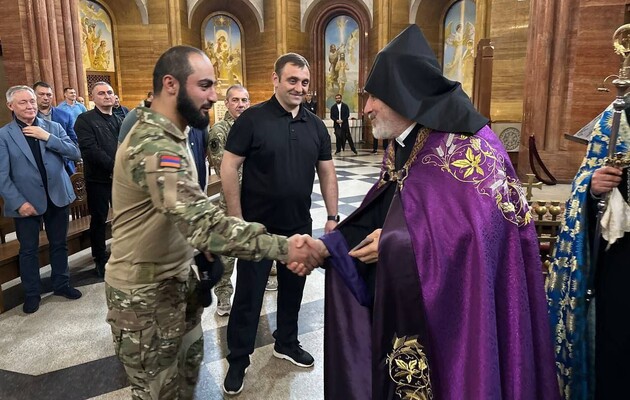
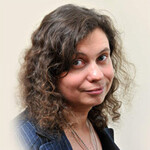

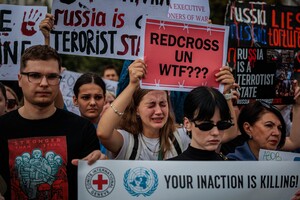
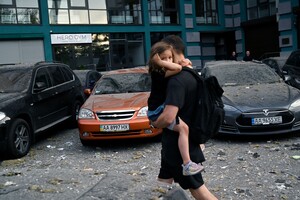
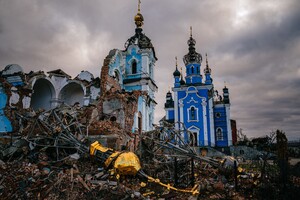
 Login with Google
Login with Google